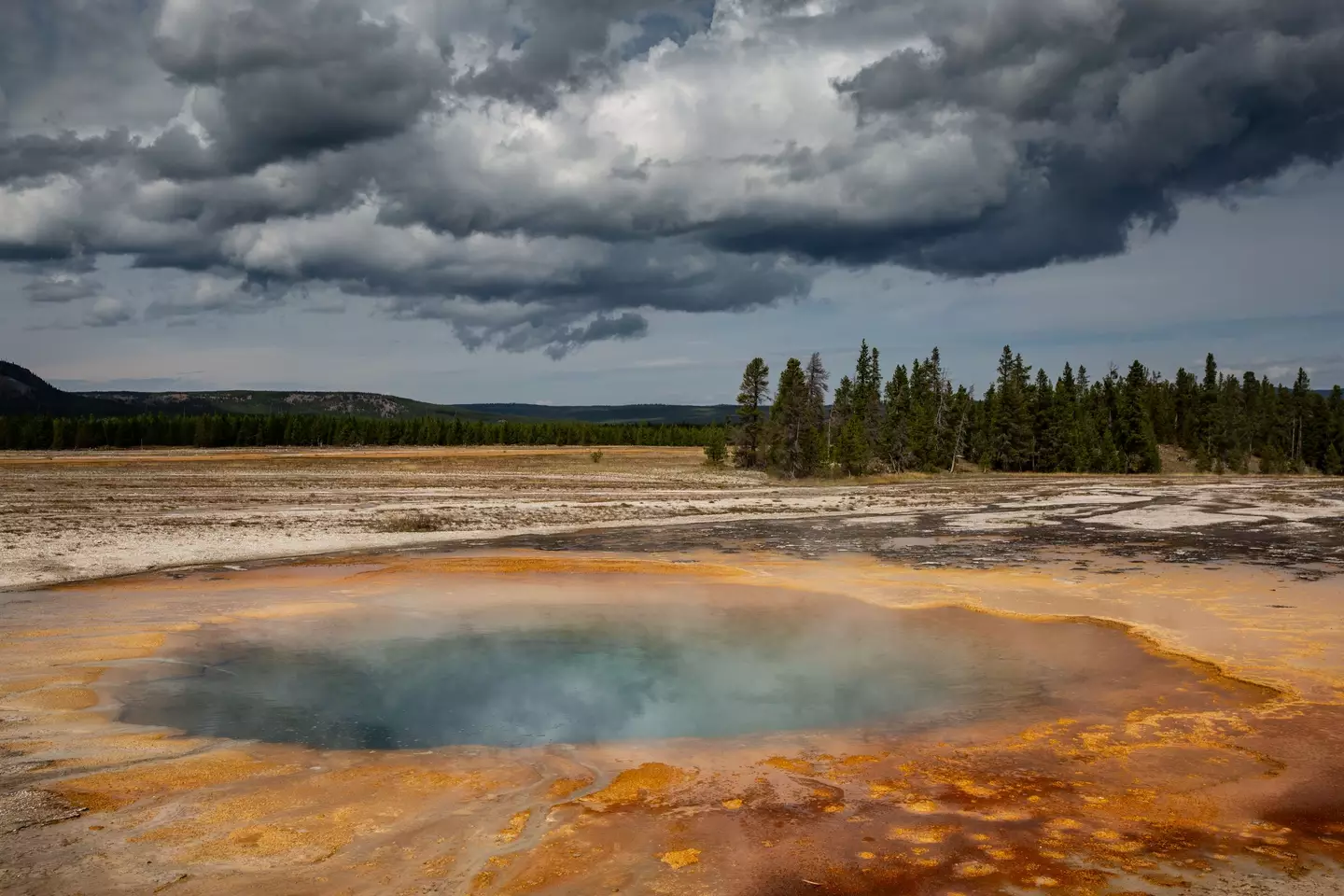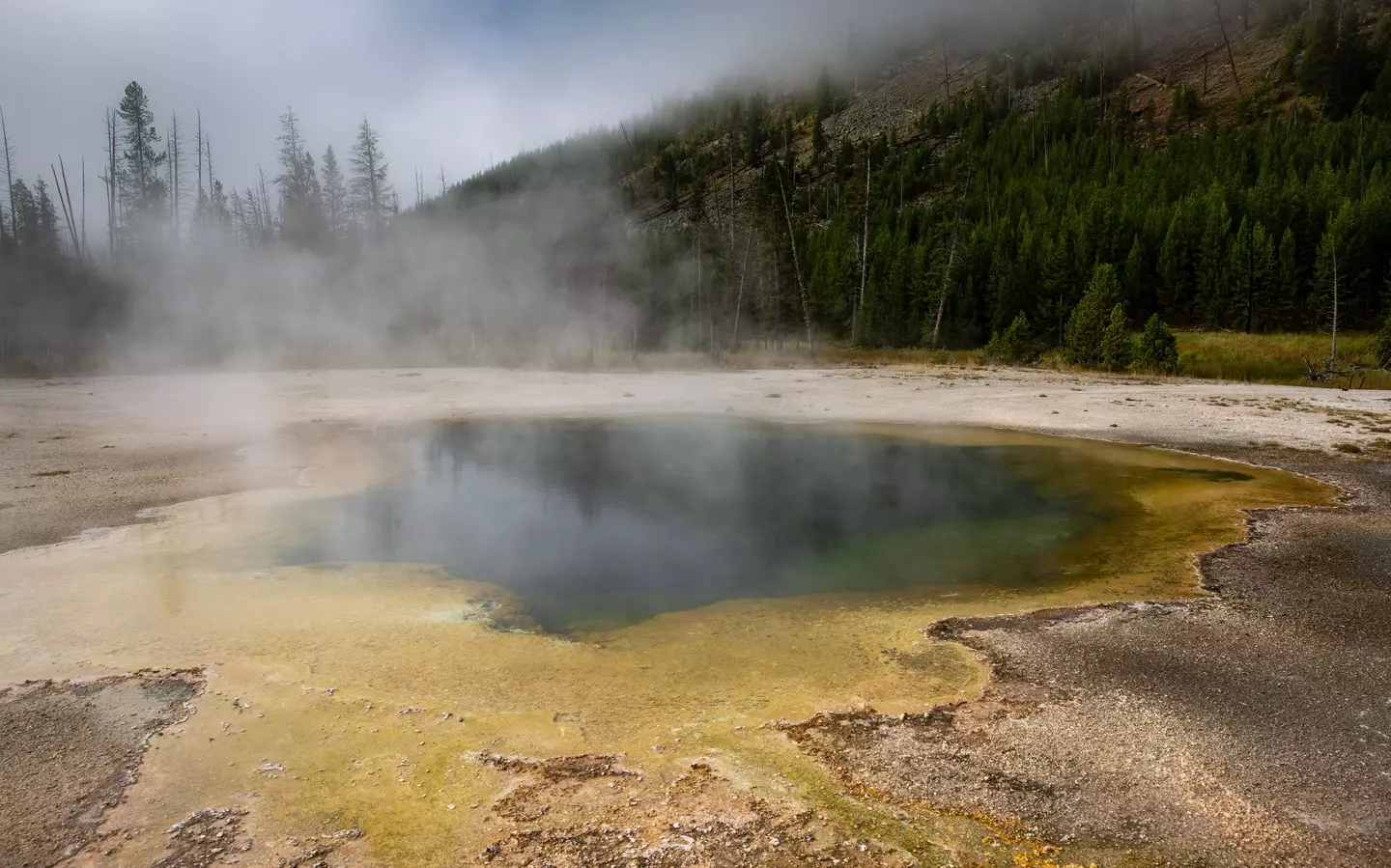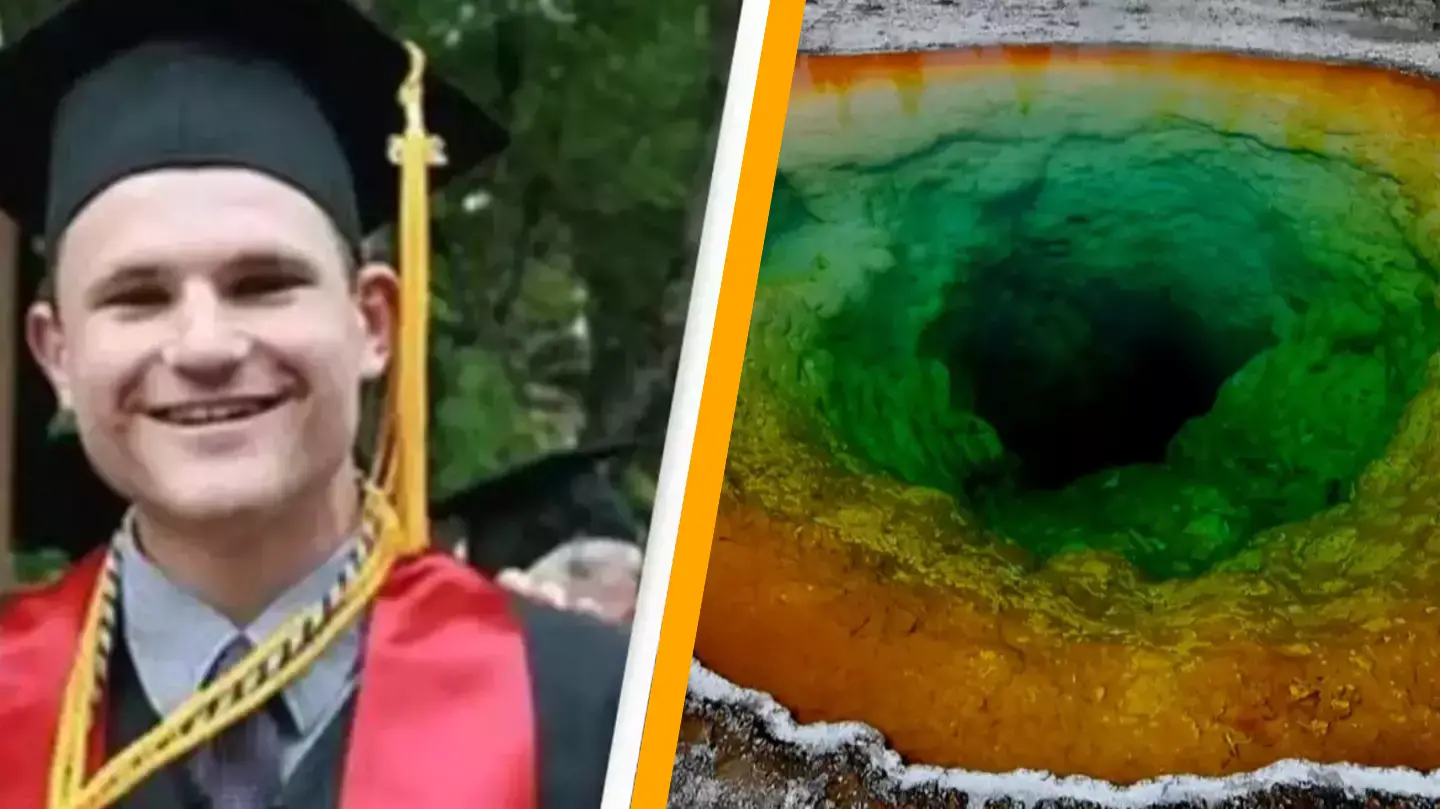Rangers were unable to retrieve the body of a man who tragically fell into a hot spring at Yellowstone National Park.
Colin Scott was seeking to engage in ‘hot potting,’ an activity involving the volcanic springs that the US national park is renowned for.
Although Yellowstone boasts breathtaking natural beauty, it poses significant dangers if caution is not exercised.
The park is famous for its volcanic pools, where magma lurks beneath the surface, heating the water and infusing it with various chemicals from deep within the earth.
One of the world’s largest magma chambers lies beneath the park, giving rise to its remarkable geographical features.
While some volcanically heated pools, such as those in Iceland, are safe for swimming and even beneficial, attempting this in Yellowstone is not advisable.
Tragically, 23-year-old Colin discovered this danger firsthand when he attempted to swim in one of these pools.

Colin had found a spot to try ‘hot potting,’ which involves briefly submerging in a hot spring.
Sadly, as he was checking the water temperature with his finger, he slipped and fell into the spring.
He was unable to escape and lost his life in the pool.
Park rangers faced challenges when attempting to recover his body, as a thunderstorm delayed their efforts until the following day.
Upon their return, they discovered only Colin’s wallet and flip-flops, with no trace of his body in the hot spring.
While there was a possibility that an animal had moved the body, officials had another theory.
What did they believe happened to the body?

Deputy Chief Ranger Lorant Veress included in his report on the incident: “In a very short order, there was a significant amount of dissolving.”
The geysers, ponds, and geothermal pools at Yellowstone have an average surface temperature of about 199F (93C).
The temperature increases significantly as one goes deeper into the water.
Few living organisms can endure such extreme conditions, except for a group of single-celled organisms known as archaea.
Unless you belong to this specific microscopic life form, it is advisable to stay away from these waters.
As noted by Outforia, 52 individuals have died in Yellowstone since 2010, though this number is less than the 92 fatalities recorded in Tennessee’s Great Smoky Mountains.

